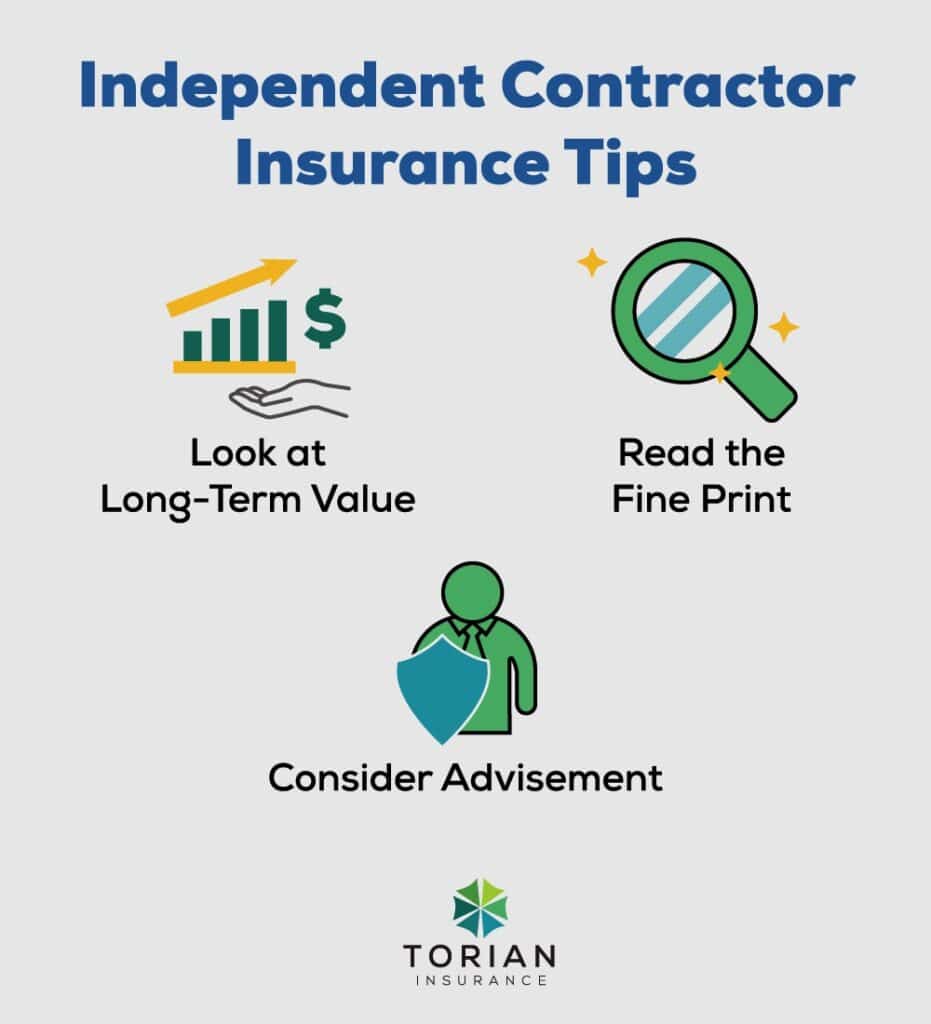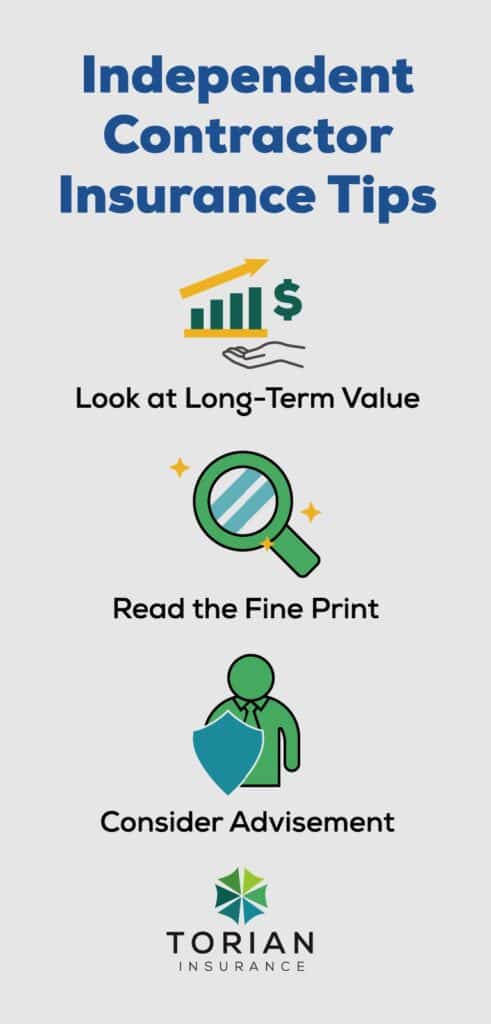As an independent contractor, you’re essentially a business of one. You’re the boss, the employee, and the person who takes on all the risk. That’s why understanding the ins and outs of general liability insurance is a must.
In this blog post, we’ll guide you through the importance of this insurance type, shedding light on the various aspects like short-term liability, owners protective liability and insurance options specifically tailored for add-on contractors.
Whether you’re a seasoned contractor or just starting, this comprehensive guide aims to help you navigate the complex landscape of insurance, ensuring you’re adequately covered against potential risks.
Why Independent Contractors Need General Liability Insurance
Operating as an independent contractor comes with its own set of risks. These include potential accidents at the job site, damage to a client’s property, or even lawsuits arising from alleged negligence.
General liability insurance is designed to provide a financial safety net in such scenarios, covering legal fees, judgments, or settlements, as well as any medical expenses if someone is injured.
It is this comprehensive coverage that makes general liability insurance a vital component in an independent contractor’s risk management strategy.
What About Short-Term Liability Insurance?
Short-term liability insurance plays a significant role in the business operations of independent contractors. This insurance coverage is designed to protect contractors against potential claims that may arise during a limited period, usually when a specific project is underway. While the duration of coverage is shorter compared to regular policies, the protection it offers can be invaluable.
Consider, for instance, a situation where you’re contracted for a project that involves risky activities or is located in a high-risk environment. Here, short-term liability insurance can be a crucial safety net, covering any potential claims related to bodily injuries, property damage, or accidents that occur during the project’s completion. This type of insurance is particularly beneficial for contractors who take on projects sporadically or work on a project-by-project basis, providing coverage precisely when it’s needed most.
Exploring Insurance Options for Contractors

Independent contractors have a variety of insurance options to consider.
The most common types include general liability insurance, workers’ compensation insurance, and professional liability insurance. Each of these serves a particular purpose and provides coverage for different types of risks.
General liability insurance protects against third-party claims for bodily injury, property damage, and personal and advertising injury. It’s a fundamental type of coverage that every independent contractor should have. Workers’ compensation insurance, on the other hand, covers medical expenses and lost wages if an employee gets injured or sick on the job. Though not all independent contractors need this type of insurance, it is required by the state for those hat have employees.
Professional liability insurance, also known as errors and omissions insurance, provides coverage for claims related to the quality of your work. If a client claims that your work caused them financial loss, this insurance can cover legal fees and damages. This is particularly important for consultants and other professionals who provide advice or services.
Commercial auto insurance is another option for those who use their vehicle for work. It covers damages resulting from accidents that occur while you’re using your vehicle for business purposes. Contractors’ equipment insurance can cover your tools and equipment against theft or damage.
The Role of Owners' Protective Liability Insurance
Owners Protective Liability Insurance (OPLI) is an additional coverage that safeguards project owners against legal claims arising due to the contractor’s negligence. This type of insurance is significant because it covers any damages or injuries that are the contractor’s fault but impact the owner. As an independent contractor, you may need OPLI, especially if you’re working on a large-scale project where the risk exposure is high.
It is worth noting that OPLI is not a substitute for your general liability insurance. It is an extra layer of protection for project owners. Therefore, if you are a contractor working on a project where the owner insists on being added to your general liability policy, an OPLI policy could be a viable solution. This way, you can ensure both you and the project owner are adequately covered, safeguarding your professional relationship and reputation.
Special Considerations for Add-On Contractors
Add-on contractors operate in a unique position within the construction industry. They typically work on existing projects, adding their specialized services to the overall project scope. This unique role brings unique risks and subsequently, unique insurance needs.
General liability insurance may not offer complete protection for add-on contractors. While it covers many common risks like property damage, bodily injury, and legal expenses, it might not cover the specific tasks that an add-on contractor performs. This is where tailored insurance solutions come into play.
It’s crucial for add-on contractors to thoroughly assess their work’s nature and identify any potential risk areas.
For example, if an add-on contractor’s work involves installing fixtures or equipment, they might need installation floater insurance. This type of coverage protects the value of the materials and equipment from the moment they are loaded onto a transport vehicle until the installation is completed.
Other specialized coverage options for add-on contractors might include equipment breakdown insurance or business interruption insurance. Equipment breakdown insurance offers protection in the event of a mechanical or electrical breakdown of equipment, while business interruption insurance helps cover lost income and operating expenses if a contractor’s work is halted due to a covered loss.
3 Quick Tips for Choosing the Right Coverage
When choosing the right insurance coverage, independent contractors should first evaluate their specific needs based on the nature of their work, including the risks involved and the value of their assets. It’s essential to select a policy that adequately covers potential liability and property damage.


1) Look at Long-Term Value
While it’s important to find an affordable policy, remember that the cheapest option may not always provide the best coverage. Consider the long-term value and protection provided by the policy, not just the immediate cost.
Reviewing the insurer’s reputation and financial stability can also provide peace of mind because Reliable insurers should have positive customer reviews and strong financial ratings.
2) Read the Fine Print
Understanding the terms and conditions of the insurance policy is crucial. This includes knowing the extent of coverage, policy exclusions, and the process for filing a claim.
3) Consider Advisement
Consider seeking professional advice. Insurance can be complex, and an experienced insurance advisor can guide you through the process, helping you understand your options and make informed decisions. This can be particularly useful for independent contractors, who often have unique insurance needs.
Torian Insurance: Your Partner in Comprehensive Insurance Solutions
Torian Insurance stands as a beacon of trust and reliability in the insurance landscape. With decades of experience, we are well-versed in the unique challenges and risks independent contractors face. We specialize in crafting personalized, comprehensive insurance solutions that cater to your specific needs, ensuring that you’re adequately protected in all scenarios.
From general liability insurance to various types of specialized and tailored insurance policy options, we cover a broad spectrum of insurance products. We also offer expert advice to help you navigate the complex world of insurance, making it easier for you to make informed decisions.
With Torian Insurance, you’re not just purchasing an insurance policy; you’re gaining a partner committed to your professional success and financial security.
Explore Your Contractor Insurance Options Today

Navigating the insurance landscape as an independent contractor can be complex, but understanding the critical facets of general liability insurance and its various forms is the first step to securing your professional future. Your choice should align with your unique needs and address potential risks in your line of work.
Torian Insurance, with its personalized and comprehensive insurance solutions, understands the intricacies of your profession and is ready to guide you through every step of your insurance decision-making process.
With nearly a century of experience under our belt, we are well-equipped to customize your contractor insurance portfolio to suit your requirements perfectly. We invite you to reach out and start a conversation with us today. Let’s collaborate to protect your business, safeguard your legacy, and build a secure foundation for your future.



